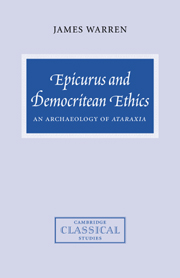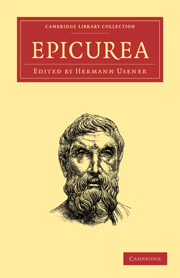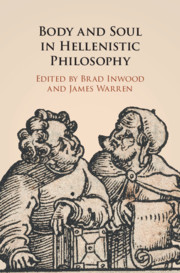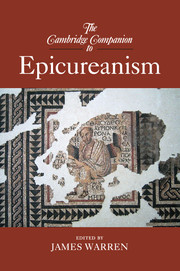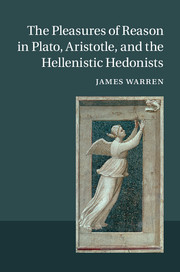Epicurus and Democritean Ethics
The Epicurean philosophical system has enjoyed much recent scrutiny, but the question of its philosophical ancestry remains largely neglected. This book traces its origins in the fifth-century BC atomist Democritus, in his fourth-century followers such as Anaxarchus and Pyrrho, and in Epicurus' disagreements with his own Democritean teacher Nausiphanes. The result is not only a fascinating reconstruction of a lost tradition, but also an important contribution to the philosophical interpretation of Epicureanism, bearing especially on its ideal of tranquillity and on the relation of ethics to physics.
- The first study of an important ancient philosophical tradition
- Sheds light on the origins of Western ethics
- Uncovers the background to Epicureanism and Pyrrhonian scepticism
Reviews & endorsements
"This is a piece of dense and detailed scholariship, painstakingly referenced and thoughtfully argued." Philosophy in Review
"This book will become a standard resource for historians of the period, providing an unsurpassed collection of material for studying the whole Democritean school, and in many cases providing definitive interpretations that will make further study unnecessary." Ethics
Product details
December 2006Paperback
9780521034456
256 pages
217 × 140 × 15 mm
0.337kg
2 b/w illus.
Available
Table of Contents
- List of figures
- Acknowledgements
- List of abbreviations
- Introduction: Epicurus, Democritus and ataraxia
- 1. Introducing the Democriteans
- 2. Democritus' ethics and atomist psychologies
- 3. Anaxarchus' moral stage
- 4. Pyrrho and Timon: inhuman indifference
- 5. Polystratus and Epicurean pigs
- 6. Hecataeus of Abdera's instructive ethnography
- 7. Nausiphanes' compelling rhetoric
- Conclusion: Epicurus and Democriteanism: determinism, scepticism and ethics
- Bibliography
- Index locorum
- General index.

